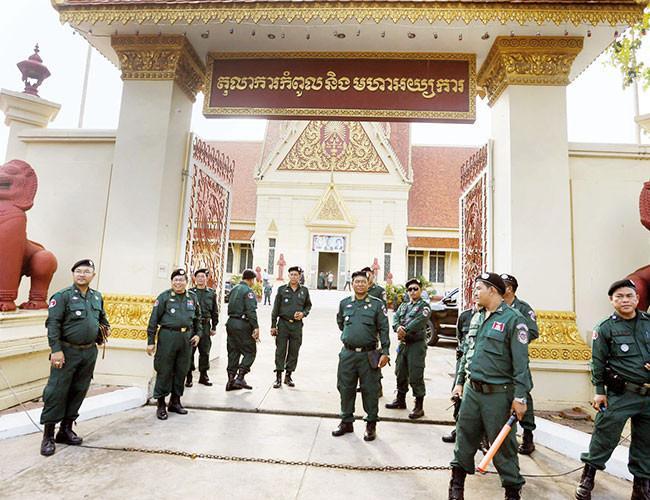
The United States promised “concrete steps” against Cambodia and the European Union raised a threat to vital trade preferences after the main opposition party was banned ahead of elections.
The Cambodia National Rescue Party (CNRP) was dissolved by the Supreme Court on Nov. 16 at the request of the government of Prime Minister Hun Sen, whose rule of more than three decades faces a major challenge at next year’s general election.
The ban on the CNRP followed the arrest of its leader, Kem Sokha, for treason. He is accused of plotting to take power with American help.
Hun Sen’s critics called the CNRP dissolution an attempt to steal the election and the death knell for democracy after Western donors have spent billions of dollars since 1993 trying to build a multiparty system following decades of war.
“On current course next year’s election will not be legitimate, free, or fair,” a White House statement said, promising to take “concrete steps.”
The first of those was to end support for the Cambodian National Election Committee ahead of the 2018 election, it said.
‘Election not legitimate without opposition’
In Brussels, an EU spokesman said the election could not be legitimate without the opposition and noted that respect for human rights was a prerequisite for Cambodia’s access to EU trade preferences under its “Everything But Arms scheme.”
That scheme giving tariff free access - and similar trade preferences in the United States - have helped Cambodia build a garment industry on low cost labour. Between them, EU and U.S. markets take some 60 percent of Cambodia’s exports.
There was no immediate government response to the reaction from the United States and European Union.
In a symbolic step, the U.S. Senate passed a resolution calling on the Treasury and State Departments to consider placing Cambodian officials implicated in abuses on a watch list for asset freezes and travel bans.